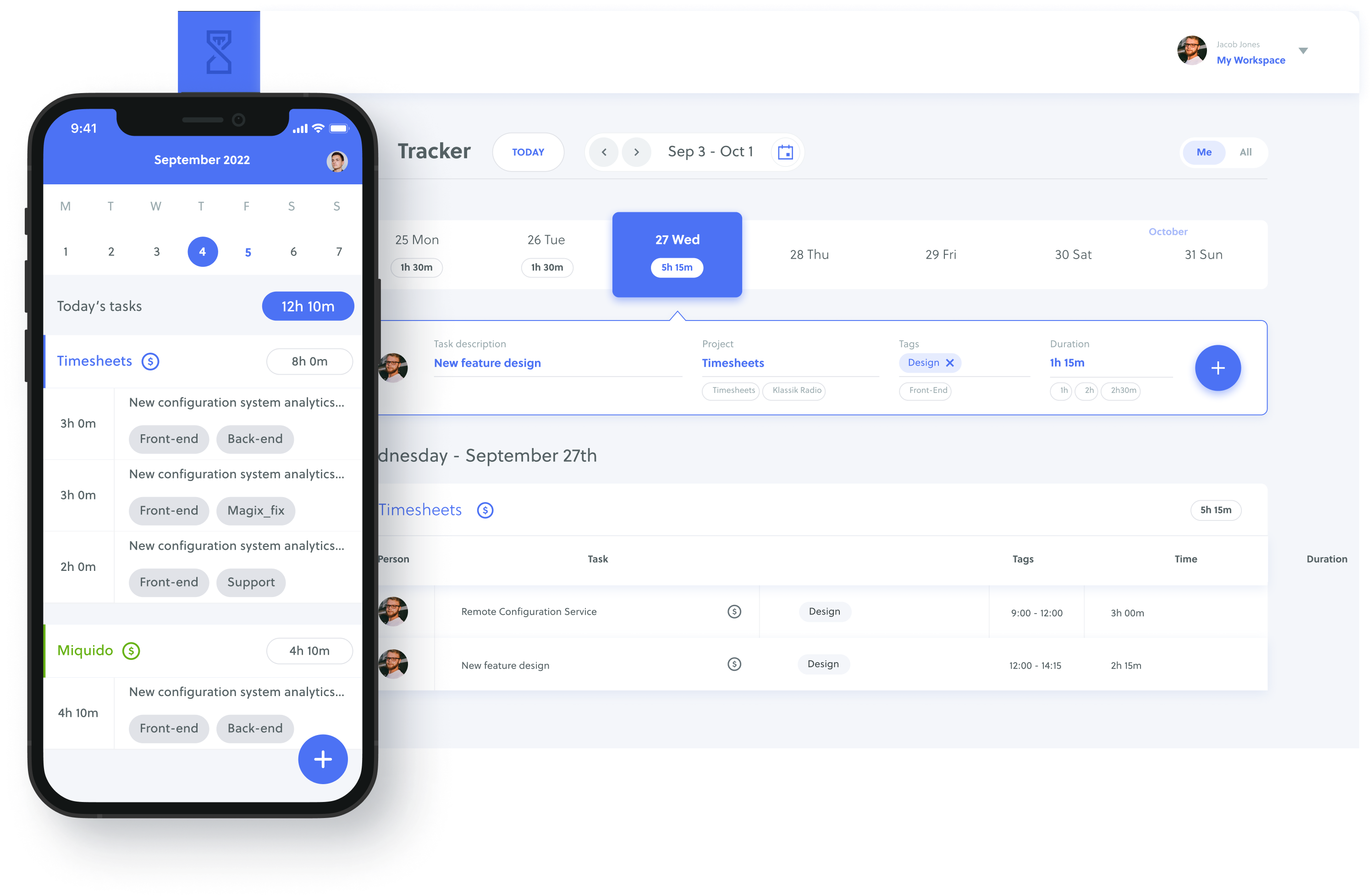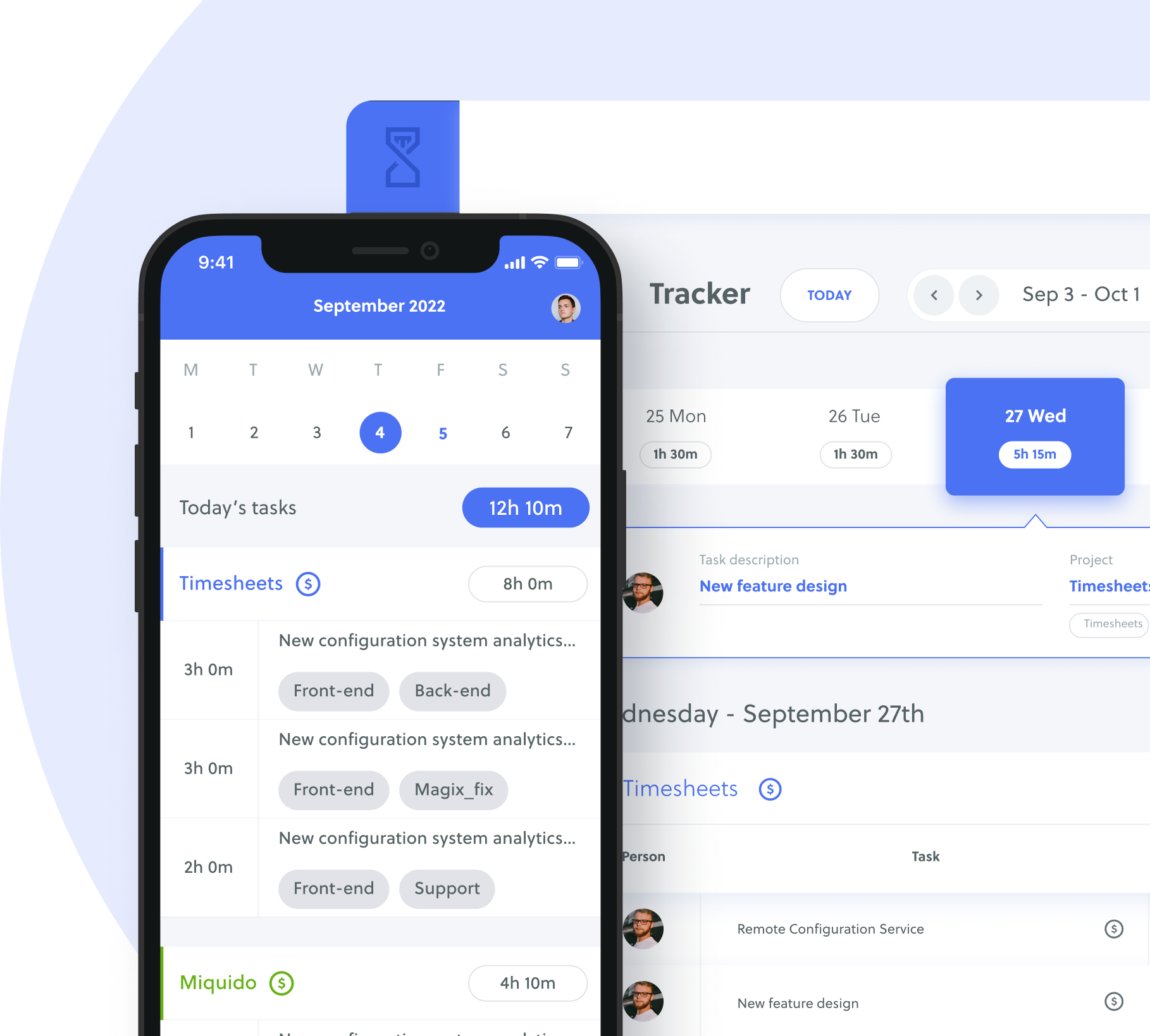Timesheets are a crucial resource for any modern company. They help track employees’ productivity, reduce time wastage, improve project management, and ensure correct billing. All of which save companies a lot of money.
This is why it’s crucial to monitor employee timesheets and ensure they are accurate.
A few decades ago, this was fairly straightforward since workplaces used paper timecards and all employees co-located. However, the workplace is experiencing technological developments that accommodate various working styles besides the conventional in-office.
Hence, getting accurate timesheets is even more challenging, which has increased the timesheet fraud risk.
This post explores the types, consequences, penalties, and prevention of workplace timesheet fraud cases. But first;
Table of Contents
What Is Timesheet Fraud?
Timesheet fraud, also called time theft, is when an employee exaggerates or gives false information on hours worked in their timesheets and takes payment for it. Time theft is common in many businesses.
In most cases, employees commit timesheet fraud by manipulating their timesheets by a few minutes daily. However, these minutes gradually turn into multiple hours, or even days, which you as an organization end up paying heavily for.
If you’re not entirely sure that your company has no time fraud cases, then chances are, it is happening. So let’s go ahead and discuss the types of timesheet fraud and how to identify each one of them.
The Most Common Type of Timesheet Fraud
The type of timecard fraud your business experiences vary based on the strategies you use to record and track hours logged in, breaks taken, overtime, and unauthorized absenteeism. However, one common type of timesheet fraud remains constant: inflation of work hours.
This type of time theft refers to when an employee increases the number of hours worked in their timesheet. The employees do this by recording the wrong arrival and leave times, making it seem like they clocked in early and out late.
Employees often do this to cover any deficiency in working hours caused by lateness or absenteeism. This type of timesheet fraud is common for businesses that mostly use hard or soft copy timesheets requiring them to manually key in the hours worked.
Other Types of Timesheet Fraud
Besides work hours inflation, the other types of timesheet fraud include:

Buddy Punching
Buddy punching fraud occurs when an employee records false log-in and log-out times for another employee who was either late or absent. It can range from a few days to an entire day.
Research shows that buddy punching costs US employers about $373 million annually and that 16% of hourly employees confess to buddy punching.
Taking Long break times
Some employees take longer or unauthorized breaks when they should be working. As a result, they work fewer hours than they should, though they still get paid for standard hours.
Fraudulent break times also refer to when employees take long-term breaks they are not entitled to, like paid vacation and sick days,
Overtime abuse
This timecard fraud occurs when employees log in standard hours as overtime hours, which, when included in payroll calculation, leads to higher salaries than regular working hours.
It happens when employers fail to monitor overtime authorization closely. As a result, employees end up working unauthorized hours without permission and can easily fake the hours.
Ghost employees
This type of fraud refers to when one of your employees is paid for hours worked by someone who doesn’t exist, a ghost employee. The employee either creates a fake employee profile or uses the hours of a former employee.
Fraudulent data entry
This timesheet fraud occurs when original timesheets or timesheet systems are experiencing issues and have to be rewritten. The employees take these opportunities to exaggerate worked hours in their timesheets.
It can also occur due to errors caused by delays in completing timesheets. For instance, if employees are required to fill in timesheets weeks or months after the time they worked, most are bound to enter the wrong hours. But since no one can guarantee that the hours are accurate, supervisors just have to sign off on these timesheets.
Favoritism Fraud
This fraud often results from supervisors favoring certain employees to perform tasks that would have been cheaper and better done if another employee had done it instead. As a result, your company pays unnecessary rates to get the job done.
The managers might also overlook other timesheet fraudulent behaviors by the employee, like inflation of work hours, break times theft, overtime abuse, etc.
Consequences of Timesheet Fraud
Like any other fraud case, timesheet fraud has consequences for both the employer and the employee.
For the employee, the obvious consequence is losing their jobs and security clearance, which jeopardizes their career, especially if they work in sectors requiring trust and discretion. Besides that, they might also have to compensate the employer for defrauding financial resources, which may be a challenge since they will most likely be unemployed at that point.
The main time fraud consequence for the business owner is financial losses. However, there are other timesheet fraud consequences, like low morale in the workplace, which results from good employees seeing their colleagues take advantage of the company.
Timesheet fraud also jeopardizes team spirit since the fraudulent employees fail to perform their tasks effectively, seeing as they’d rather cheat the timesheet, letting down the entire team.
Further, if timesheet fraud goes unchecked, it shows the dedicated employees that you don’t value their effort and ethics, which may lead to losing your top talent.
Finally, employee fraud will also negatively impact other aspects of the business, like project management, resource planning, billing hours, and payable amounts. That’s because you have inaccurate data that leads to inaccurate estimates and planning.
How to Prevent Timesheet Fraud
The precautions employers can take to prevent timesheet fraud vary depending on the business and the type of timesheet fraud you want to tackle. But before we discuss the options, there’s one critical first step that each employer must take—establishing a timesheet theft policy.
With a defined timesheet fraud, you can outline the timesheet guidelines you expect your employees to comply with, preventing timesheet fraud before they even think about it. Your time fraud guideline should highlight
How you’ll calculate hours worked
What you’ll consider time fraud
A list of the timesheet fraud categories
Disciplinary actions you will take against employees who commit or assist timesheet fraud.
Once you’ve established your policy, then go ahead and outline ways to enforce it and avoid timesheet fraud. Here are some key preventative measures you should consider for your business.
Monitor timesheets
Timesheet fraud often goes unnoticed because no one cross-checks the submitted timecards to ensure that the indicated hours align with the actual hours worked. So by monitoring timesheets, you rule out any timecard fraud and ensure the company is only paying the wages and salaries it’s supposed to.
To prevent timecard fraud through timesheet monitoring, your policy must stress managerial approval and verification. If your managers carry out this task effectively, they can catch any errors early enough before it costs your company.
Finally, ensure your managerial and supervisory staff compare timecards received from workers in the same categories since most tend to clock in similar hours in a day.
Use time-tracking software
While it might be easy to commit fraud on manually filled timesheets, it’s nearly impossible for employees to lie about hours worked on automatic time-tracking software. This is because the total hours (arrival and departure time data) are automatically generated.

Quidlo Timesheets
Hence replacing your manual timesheets with digital timesheets like Quidlo’s will help you get more accurate data and save you time and money.
For example, Quidlo tracks employees’ time automatically, and you can prevent the employees from editing the recorded time. Our software also eliminates buddy punching since each employee can only clock in once, and it’s easy to verify.
Besides helping prevent timesheet fraud, digital timesheets generate detailed reports that you can use to monitor project progress and employee performance.
Flexible Work Schedules
Employees are unlikely to commit timesheet fraud if you provide flexibility in your new workplace leading to work-life balance and higher work efficiency.
There are various ways you can provide flexible work schedules in your company, including embracing remote working, hybrid work models, and giving employees flexible hours instead of the traditional nine-to-five work week.
Flexibility in the workplace also includes encouraging employees to take frequent breaks and personal time off to avoid burnout. This leads to healthier employees who do not need to commit time theft by inflating their work hours.
Prohibit Unapproved overtime
By prohibiting unapproved overtime, you ensure your employees only work the overtime hours they’re supposed to. As a result, you make it easy to track and compensate for overtime hours since there’s already a record of it.
Any unauthorized overtime hours claim will also be rejected, reducing overtime fraud, and saving your company money.
Address even minor fraud cases
Any fraud cases you ignore act as proof to employees that they can get away with bigger timecard fraud. However, discussing any timesheet discrepancies as soon as you notice them helps you avoid more prominent employee fraud cases in the near future, saving you time and money.
Educate your employees on the risks of timesheet fraud
By doing this, you help your employees understand the direct impact their timesheet fraud will have. As a result, you’re more likely to discourage fraudulent behavior and encourage timesheet accuracy.
While all these measures are crucial, too much red tape can undermine employee loyalty and the work environment since it shows you don’t trust your employees.
So try to balance preventing timesheet fraud and pushing your employees too far. Also, by showing faith in your employees’ honesty, you automatically discourage many employees from lying.
Is Committing a Timesheet Fraud a Crime?
Yes, timesheet fraud is considered a crime. By fabricating hours worked, employees get paid for hours they did not work, which means they receive salaries or wages under false pretenses. That defrauds the company.
Depending on the amount of time stolen and money gained, a timesheet fraud crime could be considered a misdemeanor or a felony offense, especially if it happens in a public office.
Though there are no specific time theft laws, time card fraud is a subcategory that can be prosecuted under other broad criminal statutes. But it’s key to note that most of these statutes are used to prosecute government employees and contractors since the money and time stolen are considered the public’s.
One of the statutes used to prosecute time fraud is the 18 U.S.C. § 1343 statute, shown below. There must be proof that the accused employee intended to defraud by showing there was a scheme or artifice to defraud or obtain property through false or fraudulent pretenses, representation, or promises.

The other statute is 18 U.S.C. § 641, which criminalizes the theft of public money.

To get a conviction under this law, the proof must show that the accused employee intentionally embezzled, stole, purloined, or converted; or without authority, sold, conveyed, or disposed of a record, voucher, money, or something of value which the government owned or was having made under contract.
Timesheet Fraud Penalties
As noted above, timesheet fraud cases get more attention if the employee is in public office. Hence most prosecuted time fraud cases recorded are of government officials who misappropriated government money.
The sentence for this is often a felony that carries up to three years of imprisonment. The specific penalty imposed varies for each time card fraud depending on the amount of the fraud.
Since time theft prosecutions are few in the private sector, the most suitable penalty is terminating the employment contract for misconduct. It might seem like a slap on the wrist, but with a record of cheating employers, the fired employees will find it hard to get and keep a job, which can end their careers.
Summary
Timesheet fraud cases are common to all businesses with employees, and though they might seem harmless at first, they eventually add up to weeks’ worth of pay in a year.
As an employer, it’s key to ensure you identify and manage timesheet fraud cases before they affect your company’s finances, resource planning, project management, and employee morale. You can do this by following the preventative measures and penalties discussed above.
Ensure you don’t threaten the current healthy work environment while working to reduce employee timesheet fraud cases. Otherwise, your efforts will be counteractive, which will end up harming your company.







